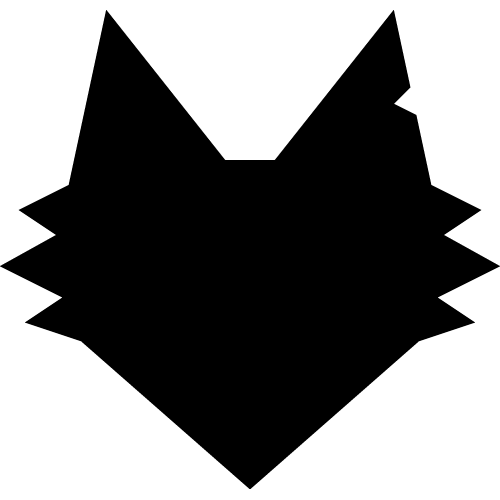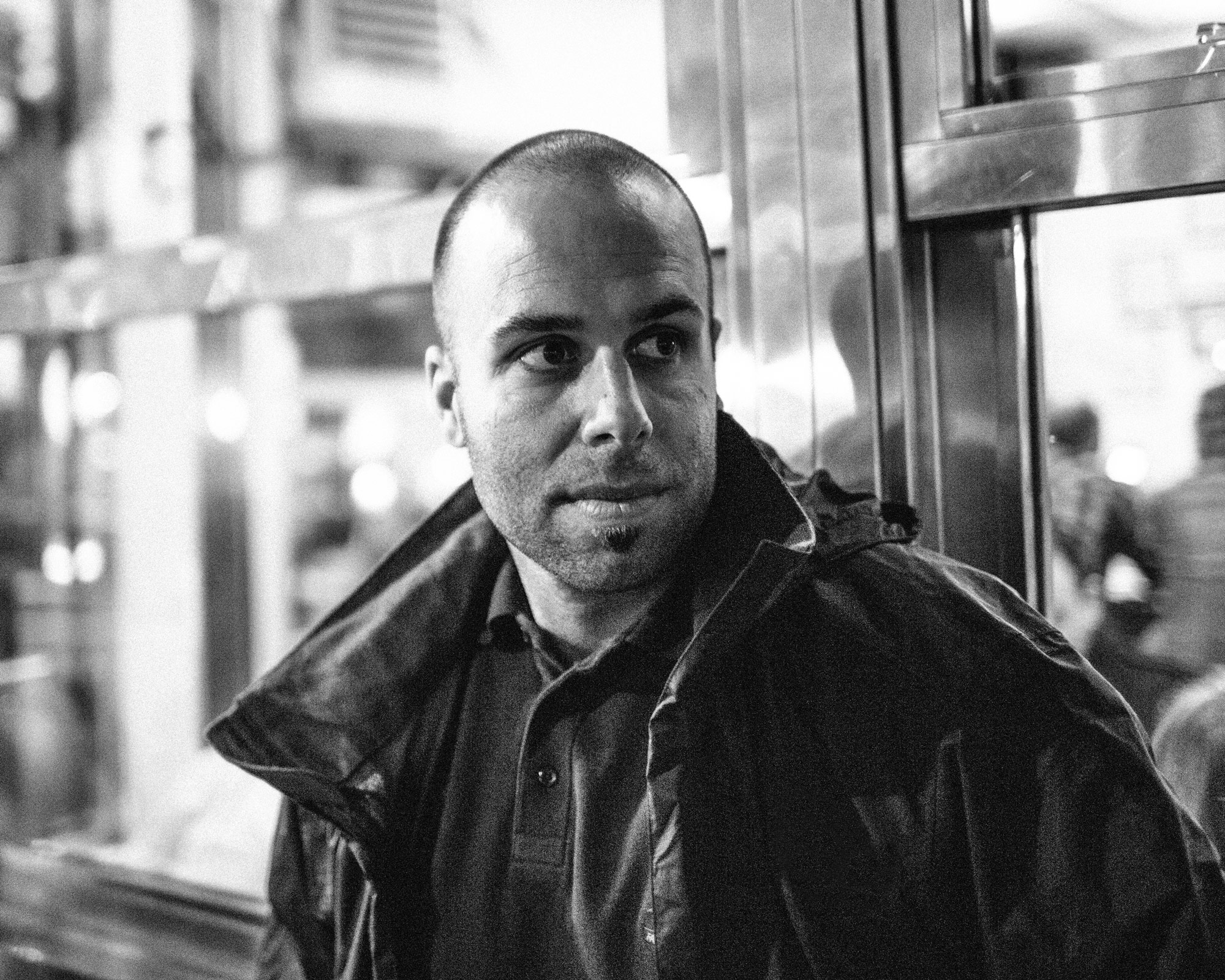
- Interview by Ryan & Tina Essmaker October 16, 2012
- Photo by Ryan Essmaker
Eliot Rausch
- director
- filmmaker
Director Eliot Rausch gained recognition with his 2010 short film, Last Minutes with Oden. The film caught the attention of Preston Lee at Über Content, who signed Rausch to the production company. Since then, Rausch has been busy directing commercials, web content, and short films. A Los Angeles native, Rausch holds a BA in Fine Arts from Cal State Long Beach and continued to live in LA.
Interview
Describe your path to becoming a filmmaker.
The younger generation has been asking me that a lot lately because I’ve had some really good success in the commercial space. I was telling a buddy today that if I knew the formula or the way I did it, I would be able to dish it out to everyone, but it’s been such a weird path that still doesn’t make sense. I’m constantly certain that I’m going to be found out as a hack. I think that in some weird way, filmmaking found me and it continues to find me.
I can tell you that I was heavily immersed in my sketchbook when I was younger. I was the kid who watched all the other neighborhood kids play because I had social anxiety and was too scared to participate. When I was being bullied or fighting depression, I escaped into my sketchbook. I was also obsessed with music, which I began listening to constantly around third grade. When I listened to music and drew, something came alive inside of me. I think it’s just always been like that—things happen as I’m searching to feel alive.
The formula that I can see was an art degree. Mom and Dad said said, “Don’t be starving artists like we were. Go and make some money.” Studying graphic design in college was fascinating. Then one of my teachers gave me an internship at an advertising agency where I got my hands on Final Cut—that was probably ten years ago. I taught myself Final Cut and After Effects and that internship turned into a full-time job. I was in the flow, things kept coming at me, and as I was exposed to more and more, the sketchbook started to take on a different form. I took the tools available to me, which happened to be Final Cut and some cameras, and I made something. It’s about the expression more than the format and I get scared when people call me a filmmaker or a director because I’d rather be known as a broken human being who got lucky with some tools, you know?
After high school, you went to college for design and stumbled into video work through your internship?
Yeah. I went to college to be a graphic designer and then realized that the graphic design program at Cal State Long Beach was four extra years. I had gotten that internship at age 19 and was really trying to hustle. I had early morning classes, then went to my internship for eight hours, and then had evening studio classes. I was almost trying to cheat my way out of college so I could just go to work. I ended up choosing to graduate with a fine art degree instead of a graphic design degree because it was quicker.
Then you started working full-time at the agency where you had done your internship?
Yeah. When I was four months into the internship, they told me that I had worked all of my required hours and they couldn’t legally keep me. I think I told them that they were going to have to get security to kick me out. The crazy thing is that the next day when I came back, the guy who had taught me everything and had been at the agency for ten years was fired and they gave me his position. That was the beginning of my understanding of how replaceable you are in this field and how hungry you have to be.
How long did you work there and how did you end up where you are now?
I worked at that agency from age 20 to around 23. Everyone told me I should become a staff editor and stay at the agency. At the same time, I was a total drug addict—I was popping pills, blowing coke, and drinking. I was possessed and driven and because of the drug addiction, if anything seemed consistent or routine, I felt like I was losing my mind. There was an opportunity to do freelance editing work with a guy I knew and I did that for a good two years through age 25.
Then another friend started to see my work and brought me in with him to edit promos. I also started to shoot music videos and was doing really well for myself as a freelance editor. When I was editing, I started to want to be more in control of the story. That fascination grew and I thought, “What if I was able to shoot and cut the footage myself and make it stronger?” I began to venture out into these passion projects to shoot and edit my own stuff. That began to grow legs and I was directing and editing for different clients and brands up until three years ago.
When the DSLR technology came out, I was working on a project in-house and my friend there had just gotten a Canon 7D. Another friend told me, “I’m putting my dog down tomorrow.” I asked him if I could document it and he said yes. We shot it in three hours the next day and I cut it together and threw it online that night. That was a film called Last Minutes with Oden.
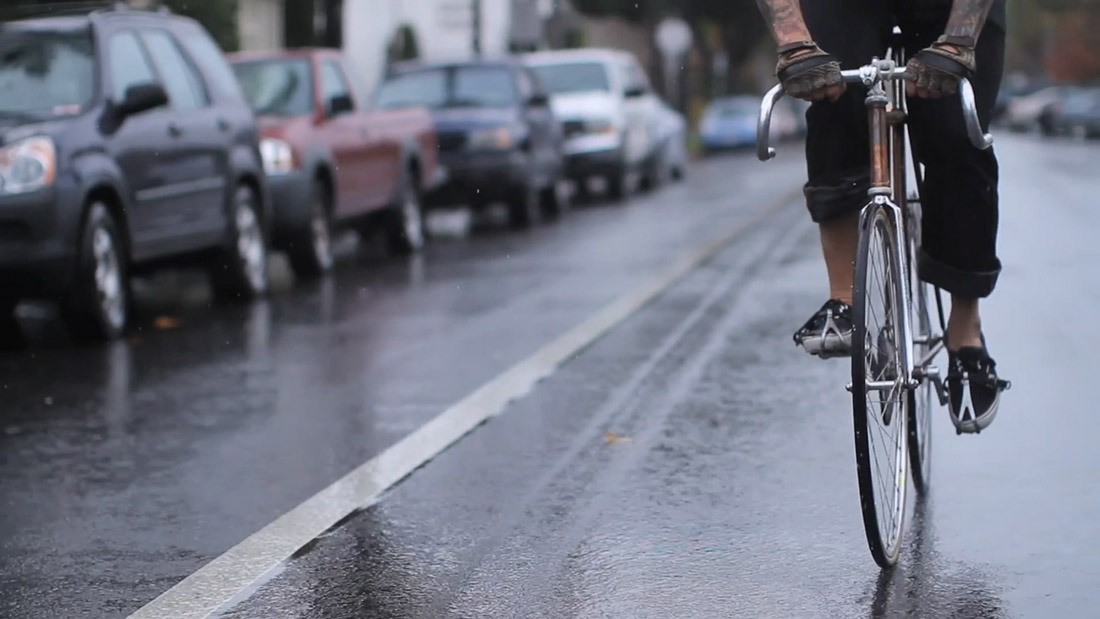
“I think my big kicker is the idea of passion…I want to feel something that gets my heart beating. You know that feeling—it’s like your first girlfriend or lover…There’s an innocence and purity to that creative space; there’s a hope that it’s going to be so cathartic that it transforms, renews, and awakens you…”
Tina: That film makes me cry every time I watch it.
Yeah, it’s so heavy. The film went viral and I got a flood of emails from people; several were from commercial production companies. One of them was Über Content who I’m currently signed with. I developed an amazing relationship with them before signing because I didn’t really want to commit myself to a company. They brought me back into the world of advertising just over two years ago. The space I’m swimming in now includes very lucrative commercial projects on a consistent basis. I’ve been blessed to have that and during any downtime, I try to squeeze out passion projects.
Coming out on the other end of this, I think I’m still very conflicted. I’m 31 years old and have had amazing success, but many times I just don’t know who the fuck I am. There is so much smoke being blown up my ass and people feel strongly about what I do, but I don’t know if I feel the same. There are many people who are invested in me and have a very strong opinion of how my career should evolve, but artists are constantly changing and growing. When you have a bigger platform and you have a mortgage and wife and things that require your dedication, it’s harder to fool around and explore yourself. I’ve had amazing success, but I’m so adamant about staying true to who I am, which becomes harder and harder.
Ryan: Do you feel like you’re still trying to find your voice?
I think my big kicker is the idea of passion. The passion comes and goes and at 31, things are less fresh and less amazing. I want to feel something that gets my heart beating. You know that feeling—it’s like your first girlfriend or lover, or like popping that CD into your car and listening to it for months on end. There’s an innocence and purity to that creative space; there’s a hope that it’s going to be so cathartic that it transforms, renews, and awakens you to carry you into the next season of life.
I’ve been exposed to so much that my idea of passion is changing. That older identity that used to carry me isn’t there anymore and I have to redefine why I’m doing what I’m doing. What I’ve come to—and it scares the shit out of me—is that I’ve been given what I have so that I can empower others. That’s less glorious and doesn’t feed my ego, but I think that’s the thing that will save me—understanding that I’m a servant of the craft and of others. Does that make sense?
“My father has an old RCA camera and when I was in second grade, I started directing him to shoot these little films. I was the director and the actor…It was hilarious.”
Tina: Totally. We’re not in our early 20s anymore and we know what it’s like to feel that pressure to commit to something and work with it.
Ryan: The only thing we’ve found personally that we’re continually satisfied with is being able to inspire other people, which is one of the reasons we do TGD.
Yeah, that’s cool.
What’s scary about being a director or filmmaker is that I’m creating these things and I have to speak for them and act like they’re the greatest thing on earth. I need to accept the trophies and talk about my brilliant ideas and how I got there. At my age, that seems like such bullshit. For a season, it was easy to say, “I’m dope and this is why.” Now that depresses me; I can’t be that dude anymore. The questions I’m asking now are, “Why do I do what I do?” and, “What is my identity connected to my craft?”
Ryan: That has to be especially true in your field. I know there’s some of that in design. You have to really stand behind your ideas and be excited about them. That’s what pays your bills.
I admire people who can dance in both worlds—business and creativity. I feel like that’s real maturity. I get so disgusted with myself when I’m being a whiny artist. It’s like, “Eliot, shut the fuck up and go be a man. Stand up, put the smiley face on, shake the hand, and believe in it because you know that is going to be better for the greater good.” If I’m constantly doubting myself, it is not adding fire to the idea of serving others. Real leaders pull the troops along even though they have doubts and fears and insecurities. They still put the game face on for the greater good.
Yeah, that’s good. You mentioned earlier that sketching was a big part of your childhood. Was creativity a part of your childhood in other ways as well?
My father had an old RCA camera and when I was in second grade, I started directing him to shoot these little films. I was the director and the actor; I’d yell at him as he was shooting me. I was this fat little chubby kid, running around in a cowboy hat and underwear. It was hilarious.
I was playing around with that kind of stuff, but for me, music was everything. I suffered such severe depression and I don’t know why; I came from a wonderful family, but I was lonely and depressed and angry. Nirvana and Pearl Jam and the whole grunge rock scene was something I escaped into. I was raised on Joni Mitchell and Leonard Cohen and all these amazing musicians. We’d go on huge family trips and my parents wouldn’t talk in the car—they’d just play these soundtracks. I think a lot of my visual ideas and the way I score things came from that.
Have you had any mentors along the way?
I think I was supposed to and I should have; it would have helped, but I also think I was too proud.
Most of the people I’d consider mentors are average people with life experience. My mother was one of those people. She is a fine artist who never got paid, but now she has a huge studio and paints daily. She became a sounding board for me. There’s my sponsor from Alcoholics Anonymous. I also learned a lot from my friend Jason Wood, who did ten years in prison—he’s in Last Minutes with Oden. More recently, Preston Lee at Über Content has helped to shape the direction I’ve taken. He’s helped deflect a lot of the issues I’ve had and taught me the importance of not just being a tortured artist.
Was there a point in your life when you decided you had to take a big risk to move forward?
I think I was filled with fear when I quit the agency job because it was really comfortable and secure.
I also think the space I exist in now is risky because there’s no forecast for where my life is going. I had many opportunities to go in-house as an editor or sign onto year-long projects, but I decided to stay self-employed so I can work on the projects I want. The dice that I constantly roll is that all this randomness will sustain me; that somehow another job is going to come along after this one, even when no one has emailed or called me.
Tina: So how does that work with Über?
Über represents me as a production company for all North American production work.
Tina: So you are a full-time freelancer?
Yes, but if someone wants to work with me, it goes through Über. Commitment scares the crap out of me, but the relationship with them has turned out to be amazing.
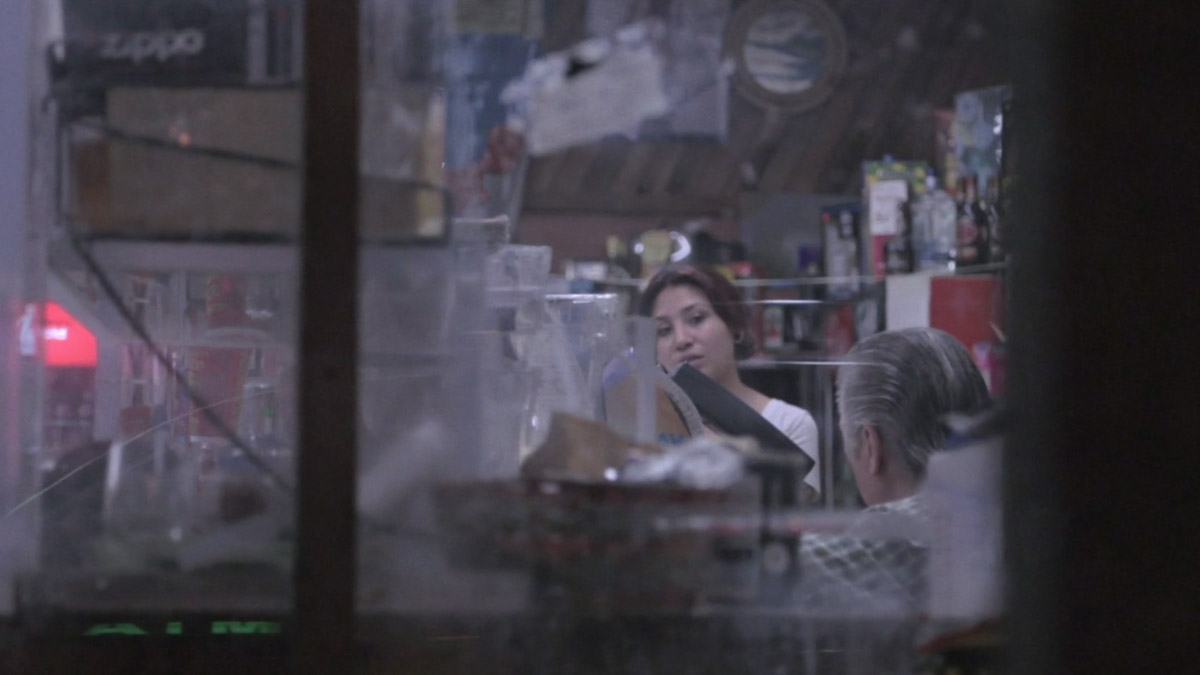
“[My mom] was the one who constantly reminded me that I was a creative being called to creative things, even when I was conflicted about who I was.”
Are your family and friends supportive of what you do?
It’s interesting because when I was a teenager, I attached myself to a group of friends who were very much living life on the hustle and trying to make money. I attached myself to them because I didn’t come from a lot and I wanted to make money and prove myself to everyone. They didn’t support the creative side of my being, which was okay because I didn’t want to be the sensitive artist kid. Instead, I was the dude banging out chicks and driving a nice car. That world came crashing down pretty hard when I was 23. As I began to figure out who I really was, I became this individual who was sensitive, artistic, spiritual, and very caring—my friends didn’t embrace that. Everyone I knew said, “Who the fuck is this guy? He’s talking about sobriety and God and art.”
Through all of that, I had a father who had known I was an artist since he first put a sketchbook in my hand when I was three years old. And I had a mother who prayed at my bedside when I was coming down off of a coke bender. She was the one who constantly reminded me that I was a creative being called to creative things, even when I was conflicted about who I was.
I made the choice to surround myself with people who mirror the individual I am becoming. Today I have a lot of acquaintances and people in my life, but very few close friends. The inner circle is a little smaller.
My wife has also been amazingly supportive and the balance in our relationship is so beautiful. She’s able to speak to my work in a very fresh way; her perception is simple, but very accurate. She supports me, but doesn’t give a shit about the work. She’d rather have me shut off everything work-related and just spend time talking with her over dinner. We don’t talk about work most of the time and that’s a great blessing to me because I often get caught up in my own ideas and she reminds me to breathe.
Tina: How many years clean?
It was seven years on September 11th.
Tina: Congrats!
Thank you.
Do you feel a responsibility to contribute to something bigger than yourself?
Yeah. I was in this place a couple months ago where I started feeling a lack of purpose and direction. I needed to get high on something again and I knew it couldn’t be drugs or alcohol or girls. I ended up speaking on a panel at a hard-core heroin rehab and there was this one woman who was trying to kick dope. I sat there and thought, “What am I doing here? I’m an artist. I’ve made great money. Here I am sitting with a bunch of drug addicts and alcoholics.” I shared a little bit of my story and that lady was so grateful. Something hit me—I don’t believe I was given all these chances at life so that I could be successful and make something for myself and live this really comfortable, cozy American life. I was peeled off the cement and given another chance because the powers that be knew that I understood that darkness and could help others. Maybe what I do is for the drug addict or alcoholic who has a day sober; maybe it’s for the young kid who is depressed and feels like giving up.
Tina: One of the things I really appreciate about your work is the people you choose to feature. People’s stories are so moving, but we often don’t hear them. You’re telling stories that people can relate to and that need to be told. I think that gives purpose to the subjects of your videos and also resonates with the viewers.
Yeah. This recent passion project I did last week is called The Pool Guy, which features a buddy of mine. He cleans pools for a living and he’s also a musician. I was talking to him and said, “Hey Pete, I’ve been dealing with some things.” He started talking and sharing his wisdom with me; it was profound. I wanted to celebrate him.
Are you satisfied creatively?
Hell no! No way. I hate my work and I’m totally bummed all the time. I’m chasing something that is never going to exist—I want that feeling where I can look at my work and say, “Finally!” With every project I do, I feel like I’m getting close to that—I can taste it on my lips and then it’s gone. I don’t think I’ll ever be completely stoked, but that’s okay because I also think that’s the death of an artist.
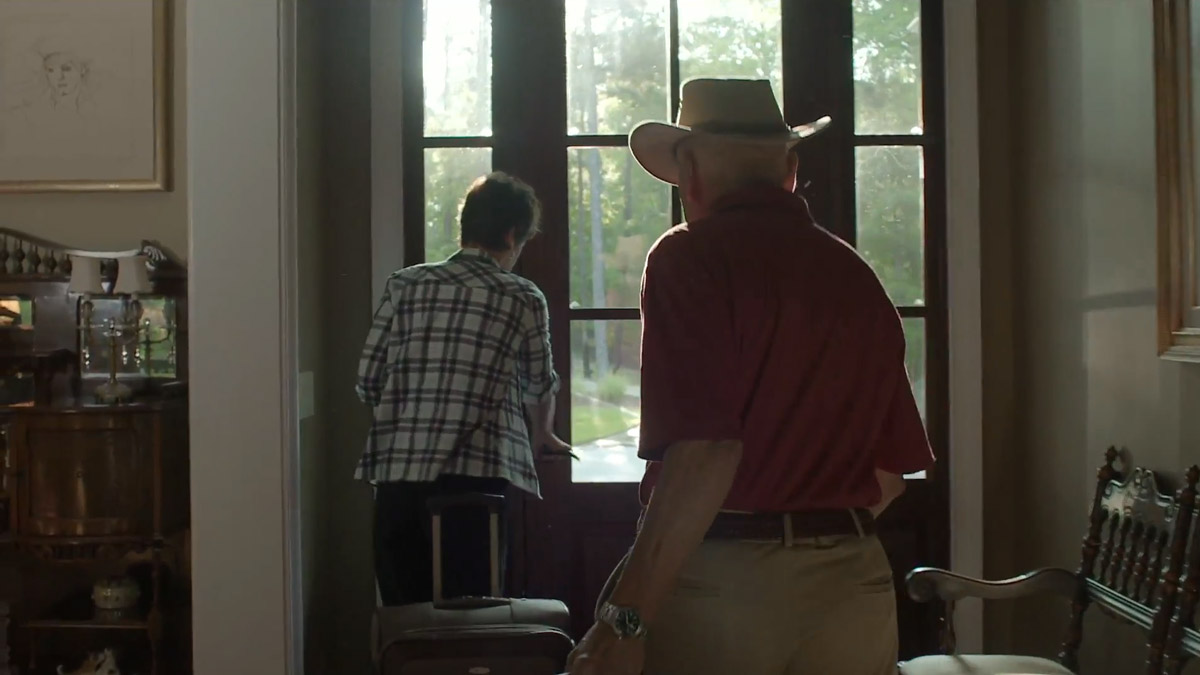
“Go out and do life; fall on your face; fail; absorb everything; let it hurt you and bleed through you; and then talk about it.”
Is there stuff that you’d like to do in the future?
I think the next step for me is longer format—probably a feature film that’s a little more meaty and takes more time than a six minute video. I struggle with ADD and lose passion so quickly that the idea of investing in something longer than two or three months scares me, but that’s definitely where I need to go.
If you could give advice to a young person starting out, what would it be?
The world of filmmaking is so over-saturated right now and there are so many conversations about formula and “going viral” and taking your brand to the next level. I think there’s this big movement to really become a well-known brand. That is the exact thing that kills the spirit of an artist. I would say: Stop studying formulas; stop studying what has been done before you; stop studying the mechanisms and devices that have carried other people in other seasons to the next level. Go out and do life; fall on your face; fail; absorb everything; let it hurt you and bleed through you; and then talk about it. Also, figure out who you are before you start telling stories. All of that is not the five-point model to success.
It’s good advice nonetheless. You live in LA. How does it impact your creativity?
I bought a place in San Pedro. I don’t know if you’re familiar with the area, but it’s a beautiful city right on the ocean. There are tons of people here with real stories. I tend to stay away from Santa Monica, Venice, and Hollywood—I lived there briefly. I was born and raised in Redondo Beach and I don’t do well with the new money, trying-to-make-it crowd. I live in the sticks among the normal working-class. I don’t show people my house much because they’d probably judge me and think I should be living fancier and closer to the hub of creativity.
Is it important to you to be part of a creative community of people?
It totally is and it’s essential, even though I don’t do the greatest job of it. I surround myself with a lot of younger kids who I keep in close proximity because I feel like they’re the heartbeat of everything. I try to find ways to serve them and give them opportunities. I probably don’t surround myself enough with people who are greater than me and can help sharpen me. I need to do that more. Some of my closest friends are directors of photography and we end up shooting together a lot, although it feels a little bit like I’m on an island out here in LA.
What does a typical day look like for you?
Man, I would love a typical day. I think my heart is always looking for something that’s rooted and consistent, but life is always fluctuating. Projects take me in so many different directions and there are so many different creative responsibilities for each one. It could be anything from brainstorming at home for a few weeks to traveling on the road for three weeks to shoot—it just varies.
Current album on repeat?
I need a new one. The last three albums I bought were Youth Lagoon, The Middle East, and—are you ready for this?—John Tavener and The Chilingirian Quartet’s album, Darkness into the Light, which is hymns.
Any favorite movies or TV shows?
The big movies for me were American History X and anything by Alejandro González Iñárritu, like Babel or 21 Grams. Those were the last films that I felt were so transformative that they changed my life, until recently. I was telling this to a friend and he told me to watch Warrior. I asked, “The movie about the UFC fighter?” He told me to just watch it and I did. The trailer looked cheesy, but I have never been so emotionally moved by a film in my life. It’s such a beautiful story about these two brothers and their father.
We’ll have to check it out. Do you have a favorite book?
I always come back to this and it’s the cheesiest thing, but it’s How to Win Friends and Influence People by Dale Carnegie. It revolutionized my life. It’s a great book for the artist because the artist is so self-obsessed. It pushes back on a lot of those things and teaches how to mix art and commerce.
What’s your favorite food?
Guacamole. I could eat it all day long in shifts.
What kind of legacy do you hope to leave?
In the end, I hope I’ve passed on a lot of what was within me to others. I hope that whatever story I was trying to tell will be carried on through other human beings.
And the most glorious thing would be to say that at some point, I was able to lay down my life for someone else. I can say my dad did that for my brother and I. He was a better artist than me, but he worked at the Chevron refinery his whole life so he could support our family. He laid down his passions so we could have our own passions. If I can do that for my wife or one day, our kids, I would like that.
